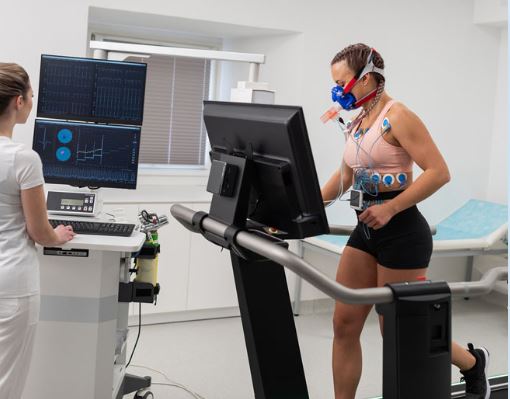For people in the MetroWest region living with lung diseases such as chronic obstructive pulmonary disease (COPD), emphysema, chronic bronchitis and pulmonary fibrosis, MetroWest Medical Center launched a new Pulmonary Rehabilitation Program.
Located on the third floor of the hospital adjacent to the Cardiac Rehabilitation Program, the program provides comprehensive outpatient disease focused exercise and education to help patients reduce and control the symptoms and complications related to lung disease and improve their quality of life.
“Collaboration is the key to the program’s success, and participants see the benefits of this approach right from the start,” says Jason Konter, MD, pulmonologist and medical director of the new Pulmonary Rehabilitation Program at MetroWest Medical Center. “Our team and your referring physician develops a customized, carefully coordinated program that helps strengthen breathing muscles and enhance daily living. Patients with severe emphysema may also participate in the program to determine if they are candidates for non-surgical treatment.”
After getting a physician referral for the program, patients undergo pulmonary function tests and interview with our staff before working closely with our team of physicians, registered nurses, exercise physiologists, and registered respiratory therapists.
All activities are carefully structured and participants are monitored through continuous EKG and heart rate (via telemetry) monitoring, blood pressure checks, and intermittent pulse oximetry (oxygen monitoring).
“I find the Pulmonary Rehab Program to be quite beneficial, helpful and informative,” says program participant Ed Maurer of Medfield. “I have had severe emphysema for many years now and never realized how little I really knew about the disease. This program has taught me a number of things I was never aware of and how I can better deal with them.”
Education also plays an essential role in the program, with individual and group discussions provided on topics such as nutrition and lung disease, breathing retraining, infection prevention/bronchial hygiene, oxygen use, respiratory medications, stress management, and conserving energy. Participants attend education sessions twice each week, before or after their exercise session, and meet with a registered dietitian to address any individual needs.
“I found out how important exercise is in reducing the number of flare ups and hospital stays one has. We walk or ride the bike and exercise with rubber bands or light weights. We watch videos on proper procedure while exercising with the various apparatus so as to get the most out of the particular exercise and not do any damage to ourselves. We watch videos on the lungs and how they work and what COPD does to them as well as videos on health and proper nutrition. All in all, the hour and a half goes by rather quickly,” says Maurer.
The overall duration of the program varies according to each individual’s needs and goals. Loved ones are also encouraged to participate to provide additional support to program participants.
Most insurance carriers cover the cost of this program, but some providers may require a copay or limit coverage to a certain number of visits. Anyone considering the program should check with his or her insurance provider regarding coverage for pulmonary rehabilitation.
“This program has helped me quite a bit and what I have learned will continue to be beneficial to me,” concludes Maurer.
For more information about MetroWest Medical Center’s Pulmonary Rehabilitation Program, call us at 508-383-8518 or FAX to 508-383-8592.

